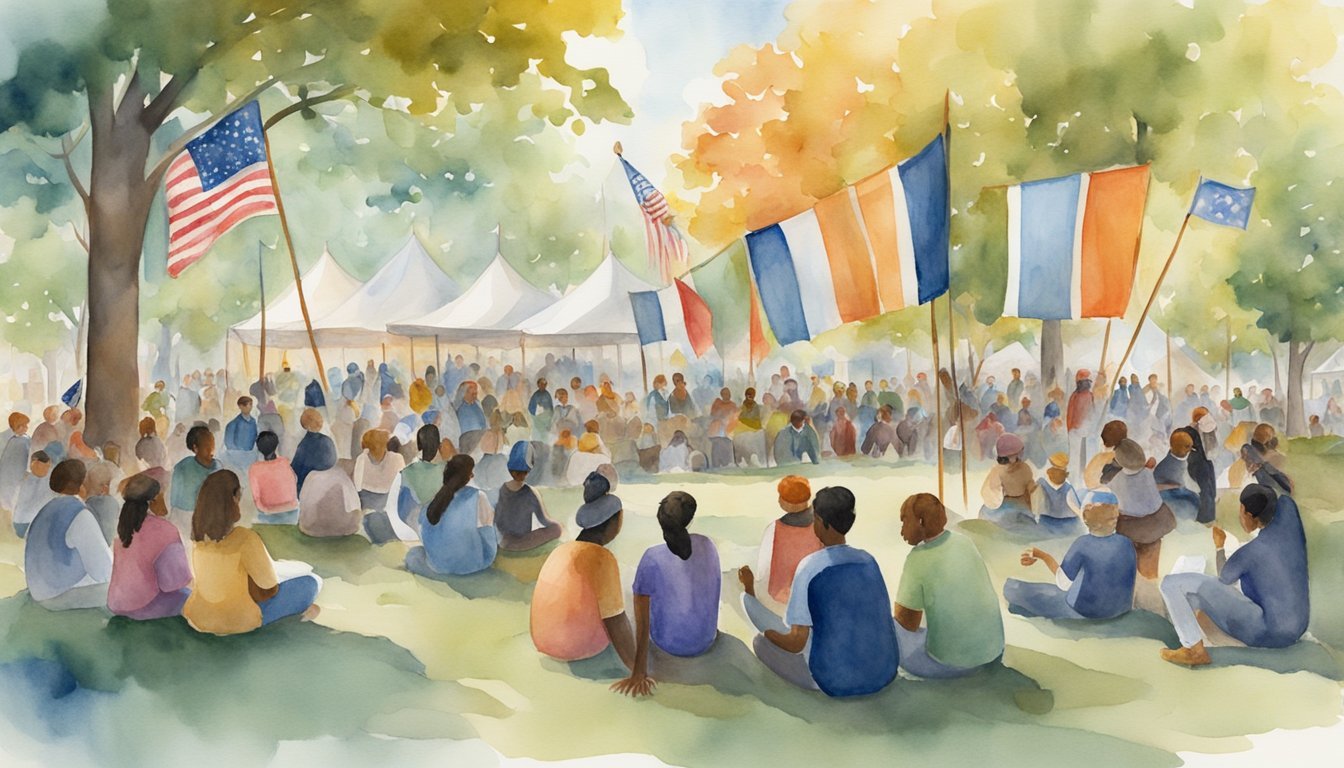Historical Context and Changing Views
The narrative around Columbus Day has shifted significantly as historical understandings have matured and cultural values have evolved. We will explore different dimensions that cast light on why the observance of this day is subject to change.
Christopher Columbus: An Overview
Christopher Columbus was an Italian navigator whose transatlantic voyages, under the auspices of Spain’s King Ferdinand and Queen Isabella, opened the way for European exploration and colonization of the Americas. His first landing on Hispaniola in the Caribbean is a pivotal moment in world history.
Columbus Day: Inception and Observance
Columbus Day originated as a celebration of Italian-American heritage, marked by parades and festivities. It became a federal holiday in 1937, largely through the influence of the Knights of Columbus and President Franklin D. Roosevelt. Early on, states like Colorado and communities with significant Italian-American populations played a central role in the promotion of the holiday.
Evolving Perspectives on Columbus
In recent years, historians have scrutinized the consequences of Columbus’s voyages, leading to a more complex view of his legacy. Issues of colonization, treatment of indigenous populations, and the unintended consequences of the Columbian Exchange have fueled debates over his commemorations.
Indigenous Peoples: Impact and Recognition
The impact of European settlement on Indigenous peoples came into sharp focus, prompting some states like Minnesota, Alaska, and South Dakota to replace Columbus Day with Indigenous Peoples Day. This change aims to honor the history and culture of Native Americans rather than celebrating the arrival of European colonizers.
Contemporary Observances and Alternatives

Recent years have seen a shift in how communities and governments perceive Columbus Day, with a growing focus on honoring Indigenous cultures and acknowledging their experiences.
Indigenous Peoples’ Day vs. Columbus Day
Indigenous Peoples’ Day emerged as a response to Columbus Day, spotlighting the history and contributions of Native American communities. This alternative celebration promotes recognition of the rich cultural heritage of the Indigenous peoples who inhabited the lands prior to Columbus’ arrival in the New World. For example, South Dakota coined Native American Day in 1990, emphasizing the importance of tribal nations and their histories.
Legal and Community Responses
Governments at various levels have responded to the Columbus Day controversy by enacting changes to how the day is recognized. Some have chosen to formally replace Columbus Day with Indigenous Peoples’ Day, recognizing the impact of Columbus’ arrival on the Taino people and other Indigenous groups in terms of atrocities, slavery, and diseases, fundamentally altering their way of life. New York’s Tammany Hall, an influential political organization, has been pivotal for Italian Americans pushing for the holiday’s observance, which was federally recognized under President Benjamin Harrison. However, this recognition is now widely contested due to the historical consequences of Columbus’ voyages.
Cultural and Educational Implications
Replacing Columbus Day with Indigenous Peoples’ Day inspires educational initiatives focused on Indigenous knowledge, histories, and contributions. Schools and cultural organizations often hold events exploring Indigenous American histories, which includes acknowledging the violence and brutality endured by Indigenous communities. Efforts are also made to celebrate the resilience and vibrant cultures of Native Americans, shedding light on the diversity and richness of their traditions. This change provides an opportunity to contextualize the explorer’s impact beyond the romanticized narratives that have long prevailed in celebrations of Columbus Day.

